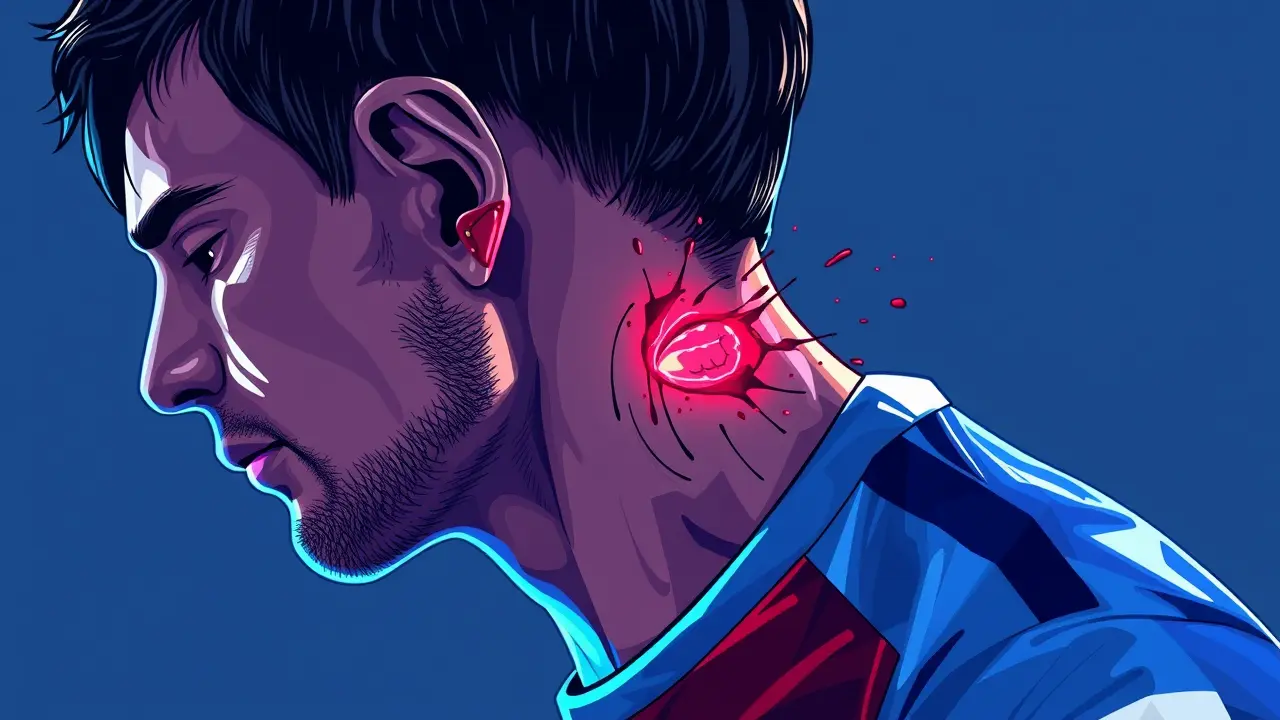Russian defender Melekhin injured by Jahanbakhsh's boot studs.
In a moment of brutal, unscripted drama that starkly illustrated the razor-thin line between competitive fervor and physical peril, Russian defender Ivan Melekhin became the central figure in a distressing incident during the BetBoom friendly against Iran, a match that will now be remembered more for a shocking boot-to-neck collision than for its final 2-1 scoreline. Deep into the second half, as both teams contested a high, looping ball, Iranian forward Alireza Jahanbakhsh, in a moment of misjudged aerial commitment, connected not with the ball but with the side of Melekhin’s head and neck, his boot studs leaving a gruesome signature of the encounter.The immediate aftermath was a scene of visceral concern: Melekhin, a pillar of his domestic side, was left with a deeply gashed ear and a neck littered with a constellation of punctures and lacerations, a stark testament to the violent force of the impact. Referee Nicola Dabanovic’s decision to brandish only a yellow card for the challenge ignited immediate debate, a decision that, in the cold light of post-match analysis, feels lenient for an action that carried such a significant risk of catastrophic injury, drawing immediate parallels to the kind of reckless challenges that have historically marred the beautiful game.This was not a mere tactical foul; it was a visceral reminder of the sport's inherent physical dangers, an event that transcends the typical 'hard but fair' clichés and ventures into the territory of sheer, avoidable hazard. For Melekhin, the substitution that followed was a medical necessity, not a tactical one, his path to the touchline a walk that symbolized a battle lost in a micro-war within the larger contest.The broader context here is crucial; this friendly was a vital preparatory step for a Russian national team navigating a period of international isolation, and the loss of a key defender, even temporarily, to such a freak injury represents a significant strategic blow for manager Valery Karpin, who must now assess not just the physical damage but the psychological impact on a squad that saw one of their own felled in such a alarming manner. The incident inevitably sparks a conversation about player safety and officiating standards in the modern era, where slow-motion replays and multi-angle cameras scrutinize every decision.One cannot help but recall historical precedents, like the horrific facial injury suffered by Chelsea goalkeeper Petr Cech, which led to a permanent change in protective headgear culture, and wonder if this event will prompt similar introspection regarding aerial challenges and the equipment involved. While Jahanbakhsh, a seasoned professional with experience in the English Premier League, is not known for a malicious streak, the optics of the challenge were undeniably poor, a moment of uncontrolled aggression that overshadowed his technical abilities and cast a pall over Iran's performance. As the dust settles, the focus shifts from the three points earned by Russia to the recovery timeline of Ivan Melekhin, whose resilience will now be tested beyond the pitch, and to the ongoing debate about where the line is drawn in a contact sport that continually grapples with balancing its combative essence with the fundamental duty of care owed to its athletes.
It’s quiet here...Start the conversation by leaving the first comment.
© 2025 Outpoll Service LTD. All rights reserved.
